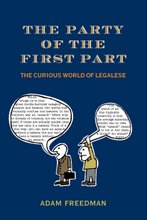According to
OutlookIndia, a legal battle is brewing over the status of the Kannada language of India. Not whether Kannada is an "official" language of India (it already is), but whether Kannada deserves to be recognized as a "classical" language.
A constitutional decree in 2004 created a new category of languages in India -- languages that met certain requirements could be accorded the status of a 'classical language.' Tamil and, a year later, Sanskrit, have been accorded the status. But so far, Kannada has not.
On the off-chance you're not familiar with it, Kannada is one of the major Dravidian languages of India, spoken in the southern state of Karnataka. Karnataka activists have blocked an express train for 20 minutes to agitate for classical status, and they've promised to take the issue up to the Supreme Court if they don't get their way.
So if a group of ancient Romans blocks a train in your neighborhood, don't be alarmed; they're probably just agitating to get more respect for Latin.
